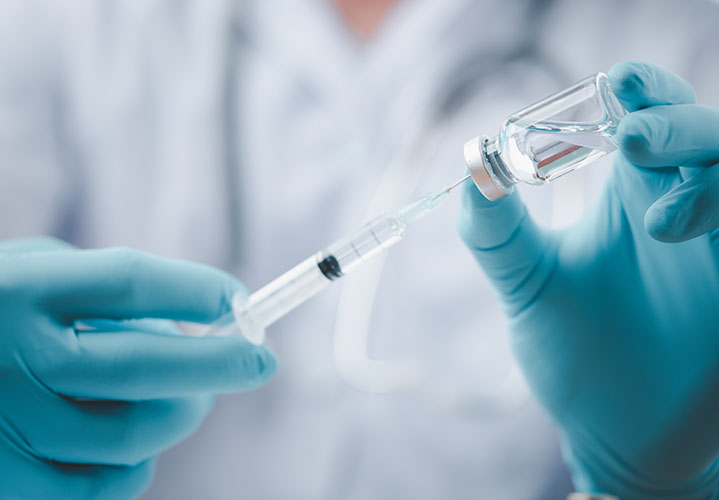With the "Indian" variant now raising its ugly head in other parts of the world, the idea that nobody is safe until everybody is safe feels more relevant than ever. Nevertheless, President Biden’s support for an intellectual property (IP) waiver to allow low and middle income countries to make the vaccines themselves came as a surprise. Normally, the US takes a strong stance on IP protection, but its trade representative, Katherine Tai, made it clear that these were extraordinary measures in extraordinary times. It was left to the CEO of Abbvie to put the classic IP argument - who will make the vaccine next time if the incentives provided by the patent system are threatened in this way?
Vaccine nationalism
Instead of relying on an international scheme such as the WHO-backed COVAX that aims to distribute vaccines equitably around the world, most wealthy countries have gone it alone and entered into their own advance purchase agreements (APAs) for vaccines. These agreements often provide for priority access, leaving less for others. The WHO estimates that, as at 5 May 2021, 80% of doses administered had gone to high and upper middle income countries. Wealthy countries also stand accused of hoarding vaccines, and calls have recently gone out from the WHO and others to donate vaccines rather than vaccinate low risk groups such as children.
Will an IP waiver solve the problem?
An IP waiver in relation to the COVID-19 vaccines as proposed by the US aims to increase vaccine availability and affordability in low and middle income countries by enabling them to make the vaccines themselves without obtaining consent from the patent owner or paying royalties. However, some have warned that, although India, for example, is already a major vaccine producer, some low and middle-income countries would lack the manufacturing capacity and skilled technical personnel required to manage the complex biological processes involved. A further consideration is that in the absence of co-operation from originators, learning how to make the vaccines from scratch could simply take too long, even for the experts. This is particularly true in relation to the mRNA vaccines (for example, the Moderna and Pfizer vaccines) which use revolutionary new biological technology. Giving access to the patents and other IP is not enough without the considerable manufacturing know how, and it is unclear to what extent know how would be made available if there were a waiver.
The real problem is scaling up production
Pfizer argues that waiving IP rights “would not speed up vaccine production” … “particularly if companies begin to buy up scarce inputs in the hopes of manufacturing a vaccine”[i]. This sentiment is echoed by the Federation of Pharmaceutical Manufacturers and Associations which argues that the waiver will simply be a distraction from dealing with the real challenges of scaling up production and distribution of the vaccines globally, including addressing bottlenecks in supply chains and scarcity of raw materials and ingredients. To put this task into perspective, a recent British Medical Journal article indicates that current annual production of all vaccines worldwide is about five billion doses whereas the aim is to produce about 9.5 billion doses this year.
Alternative solutions
Rather than a waiver, the Federation sees a need for a “willingness by rich countries to start sharing doses with poor countries”. It is unclear, however, whether the political will for such a solution exists. Alternative solutions include voluntary waivers and compulsory licensing. For example, Moderna announced in October last year that it will not enforce patents on its vaccine during the pandemic (although it has not committed to teach others how to make it); Dr Reddy’s recently announced that it had entered into a royalty-free licence with Eli Lilly to produce baricitinib, which is used in conjunction with remdesivir in treating COVID-19; and Israel and Chile are among the countries taking the compulsory licensing route in relation to at least some COVID-related products. Compulsory licensing may be more attractive for patent owners as they are still entitled to royalties. However, compulsory licences are aimed primarily at allowing domestic production; and although it is possible for a country to obtain a compulsory licence for production in another country for export, this system has proved difficult to operate in practice.[ii] This in turn disadvantages countries that do not have a domestic vaccine capacity, which includes many poorer countries in need.
Implications for companies
The negotiation of a COVID-19 patent waiver at the WTO is expected to take some months and it is still uncertain whether a waiver will actually result. However, some commentators have suggested that the possibility of a waiver may have increased the willingness of patentees to entertain other options such as affordable licences. Where it is available, the certainty of a commercially negotiated licensing arrangement is likely to be the preferred option for most companies, whether licensors or licensees. Such a licence enables the parties to agree terms both in relation to patents and other IP rights such as designs and copyright and also in relation to technical support while offering protections against the leaking of that all-important secret know how.

 Charlotte Tillett
Charlotte Tillett